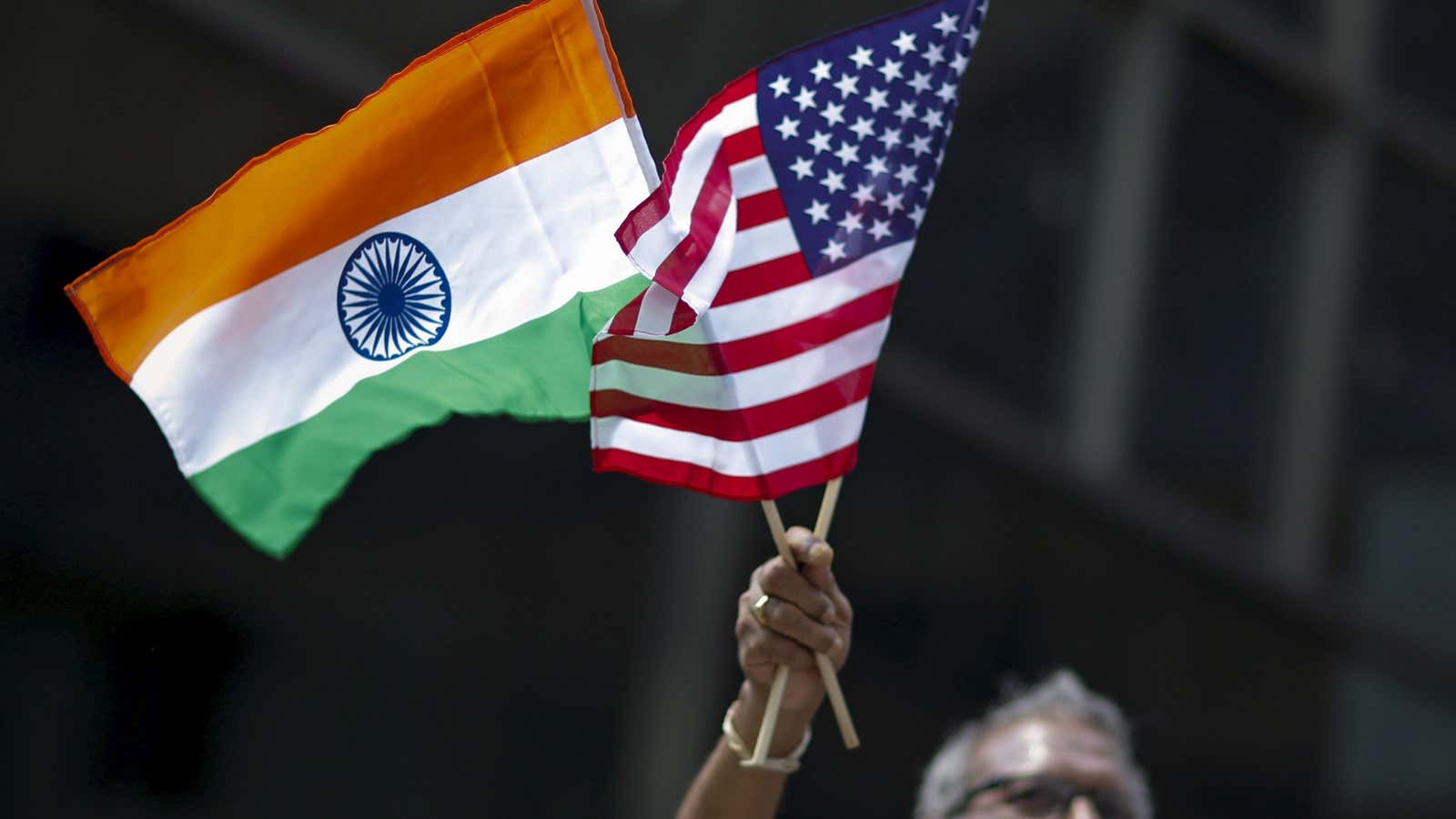The partial US government shutdown which began on Dec. 22 is wreaking havoc on businesses run by Indian immigrants in the country.
One, e-verify, the government’s internet-based system that lets businesses determine the eligibility of their employees to work in the US, isn’t functional. So hiring has stopped.
Second, the much sought-after investor-visa programme, too, faces a roadblock. “The EB-5 Immigrant Investor Regional Center Program expired at the end of the day on Dec. 21, 2018, due to a lapse in congressional authorisation to continue the program,” the US citizenship and immigration services (USCIS) announced in the days leading up to the shutdown. “All regional center applications and individual petitions are affected.”
Employers’ dilemma
Already, employment-based visas are facing immense scrutiny as president Donald Trump pushes his “Buy American, Hire American” policy. With the government coming to a halt over the lack of support for Trump’s pet project, the border wall with Mexico, things have taken a turn for the worse.
“A lot of my clients and employers in general are extremely frustrated right now because, while the administration continues to crack down on companies hiring unauthorised workers, the government shutdown has taken away the main tool for employers to ensure they comply with the law,” said Matthew Asir, owner of The Legal Bullet, a Chicago-based company that helps small businesses seeking visas to bring foreign employees to the US.
At bigger companies, there is at least strength in numbers so they can make adjustments to their workforce until the shutdown tides over. Smaller companies, though, don’t have that liberty.
“Some of my clients include local Indian restaurants or IT companies (often Indian-owned) who hire immigrants from India,” Asir explained. “For them, hiring these employees can be essential to the everyday running of their business. For example, a local Indian restaurant may be unable to bring on a much-needed chef from India.”
Meanwhile, no company can shirk the responsibility of verifying employment eligibility altogether. They have to keep track of all new hires during this time and add them to the e-verify platform at a later date. Similarly, for cases in a limbo, they have to wait to take any action.
The only option employers now have is to wait for the shutdown to end. “…even then, there is a chance the system could be overburdened causing further delays,” Asir warns.
No entry for investors
As the noose around the H-1B tightened, Indian students, skilled professionals, and entrepreneurs turned to the EB-5 investor visa.
It has been touted as a relatively easy path to citizenship for foreign nationals, wherein they could invest a minimum of $500,000 in a US-based commercial enterprise and show that their investment created 10 full-time jobs in exchange for permanent residency status.
The visa has often been dubbed a “citizenship for sale” and allegations of money laundering and fraud are widespread among EB-5 recipients. Congress has made several attempts to tweak the visa from asking for the minimum investment requirement to be raised to $1.35 million to terminating it altogether.
Despite the backlash, it found many takers among Indians. And in recent years, the group’s interest in the “golden visas” had peaked. As of October 2018, India had 852 I-526 petitions pending—required for EB-5 applicants—second only to China’s 1,236. Between 2018 and 2020, Indians will splurge almost $3 billion on EB-5 investments.
During the US government shutdown “many Indians trying to come to the US are having an incredibly hard time because the one visa category that is typically easy for Indians to obtain is now facing limitations due to the government shutdown,” said Asir.
Uncertainties still remain around when the EB-5 programme will get extended and how the criteria for it will evolve.
However, the opportunity is not totally lost yet, other experts say.
“USCIS is accepting and issuing receipts for applications filed after December 21, 2018 and putting them on hold until the Department of Homeland Security gets funded,” said Vivek Tandon, founder and CEO of immigration firm EB5 BRICS. “There isn’t a noticeable slowdown in EB-5 applications from India because everyone understands this partial government shutdown is temporary.”
Tandon’s company did witness a rush of applications from India in the run up to December 21, though, because the panic is starting to set in.
